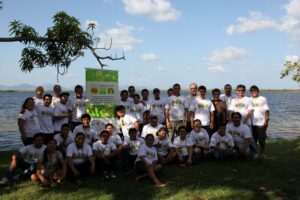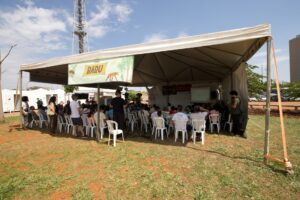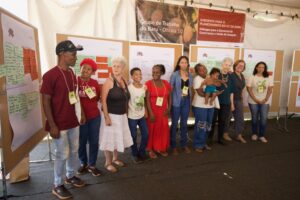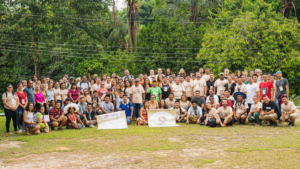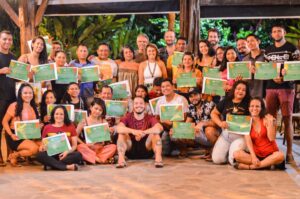Past, present, and future: IEB has a week of celebration and strategic planning marking 25 years of history. (english version)
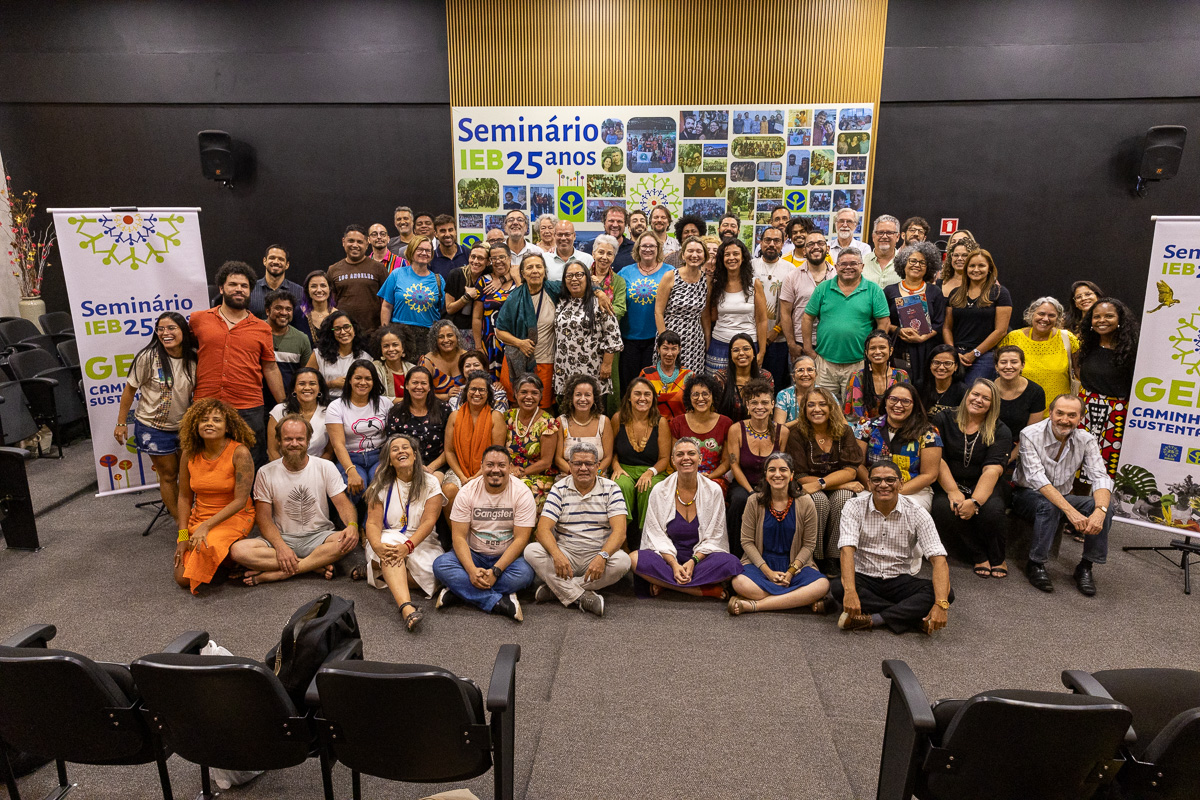
Nurturing the capacity to navigate through dynamic contexts and challenges, practicing active listening, engaging in collective construction, responding promptly to demands, all while upholding the principle of partners’ protagonism over self-interest, poses a considerable challenge. Undertaking this for a quarter of a century amplifies the complexity. Therefore, on 14 November, this remarkable journey was commemorated in Brasília during the Seminar IEB 25 years.
On a day of tributes, anecdotes, and cherished memories, the Instituto Internacional de Educação do Brasil – IEB brought together the diverse individuals who have shaped, are shaping, and will continue to be part of this narrative that will unfold over many more decades. The gathering aimed to revisit our journey, understand how and why we find ourselves where we are today, and contemplate the directions the winds may take us in the next 5, 10, and 25 years.
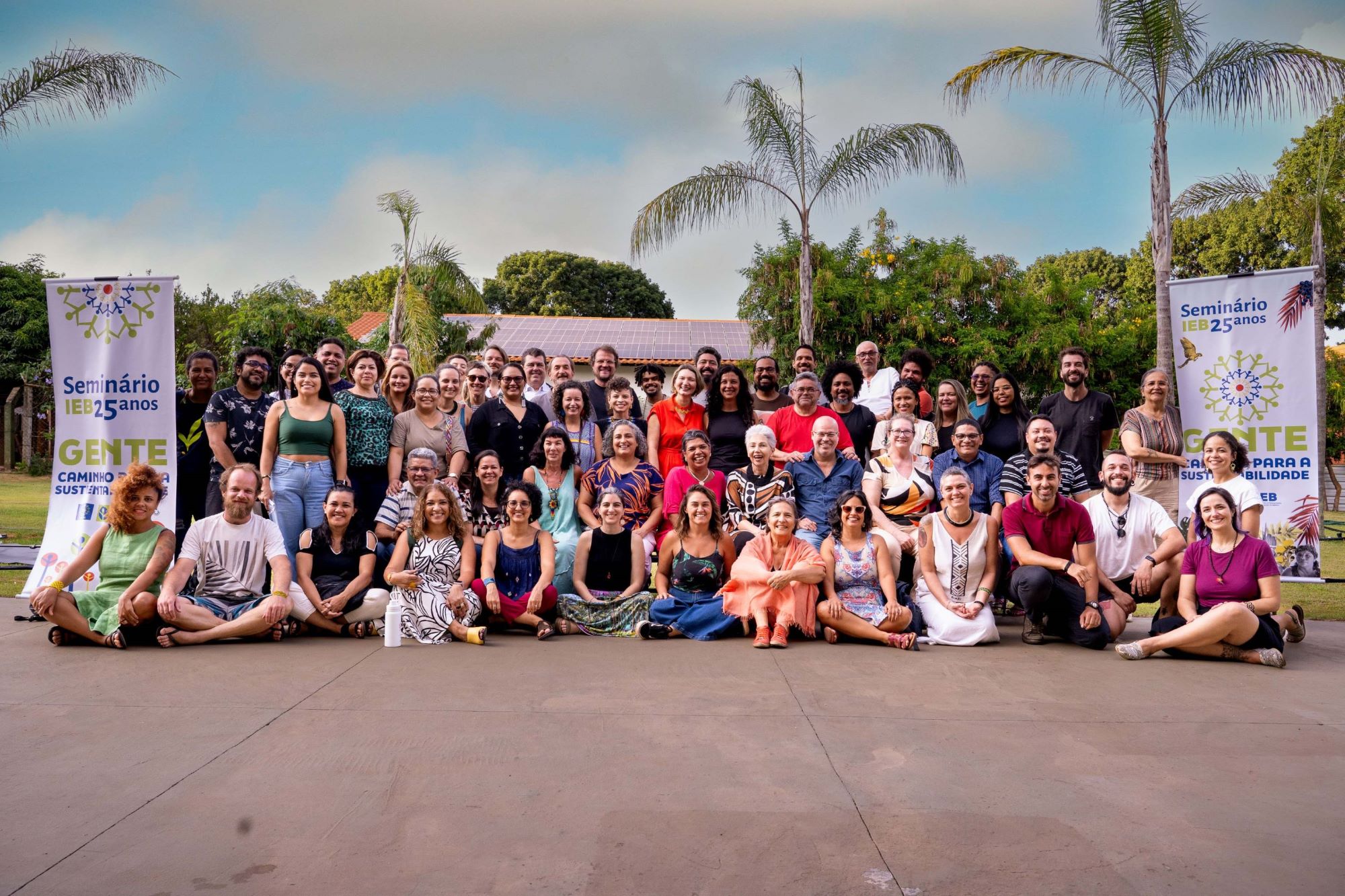
The IEB team during the 2023-26 Strategic Planning conducted following the IEB 25 Seminar
It’s not that the IEB wants to get involved in conflicts. But we find ourselves in conflict zones. And this is related to the mission we have undertaken,” summarized Daltro Paiva, project coordinator and one of the seasoned voices within the organization.
“If our purpose is to work so that, together with the communities, they have their rights guaranteed, there’s no avoiding conflicts. They arise. We can address the conflict to intensify it, or, as the conflict deepens, we can find ways to resolve it, but with the delicacy and sensitivity of not skirting around it. Here emerges something from the methodology, the way of working at IEB, which doesn’t hide from conflict but embraces it, developing methods and mechanisms to overcome it.”
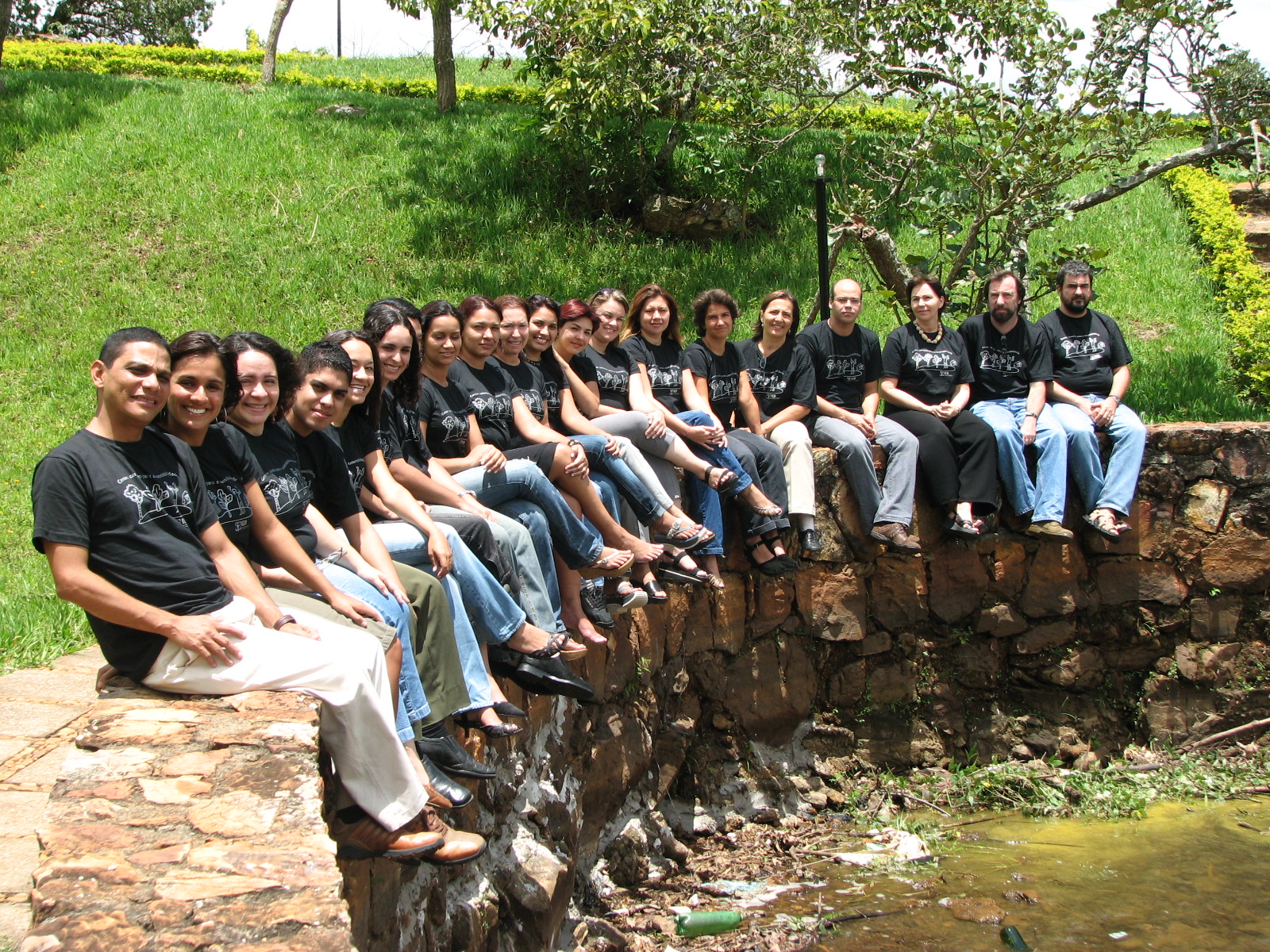
IEB year-end meeting in 2007. Photo: IEB Collection
After a session honoring significant partners in this journey – both those currently here and those who have departed – the 25th-anniversary seminar provided a retrospective of the history of IEB’s four programs, along with an overview of the current and future initiatives.
The Indigenous Peoples Program provided insights into its history in the Southern Amazon and Roraima, outlining the establishment of partnerships with 14 organizations and the dedicated efforts to contribute to both the development and implementation of the National Policy for Environmental and Territorial Management in Indigenous Lands (PNGATI).
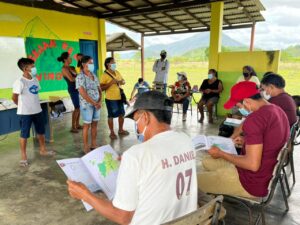
Meeting to develop the Territorial and Environmental Management Plan for Raposa Serra do Sol. Photo: Ney Maciel
Meanwhile, the Cerrado Peoples Program, IEB’s newest initiative, revisited the organization’s work with the Cerrado in the early 2000s. The biome regained prominence within the institution through the Fundo de Parcerias para Ecossistemas Críticos (CEPF), inspiring a new agenda that aligns more with IEB’s ethos—characterized by a grassroots, hands-on approach. This initiative actively partners with Cerrado community organizations for projects involving the Baru nut supply chain, herbal medicines, and the mission to officially recognize the traditional practices of ‘raizeiras’ (women with traditional knowledge of medicinal plants) as Intangible Cultural Heritage of Brazil by the Instituto do Patrimônio Histórico e Artístico Nacional (Iphan)
The Territorial Planning and Governance Program in the Amazon, known as ORDAM, brought forth the history of its origin myth, the SulAm Program, the numerous processes supporting land regularization in the Southern Amazon, and the significance of the Amazon Dialogue Forum. It also highlighted new initiatives focusing on the socio-biodiversity economies and the advocacy for the rights of Traditional Peoples and Communities and Family Farmers.
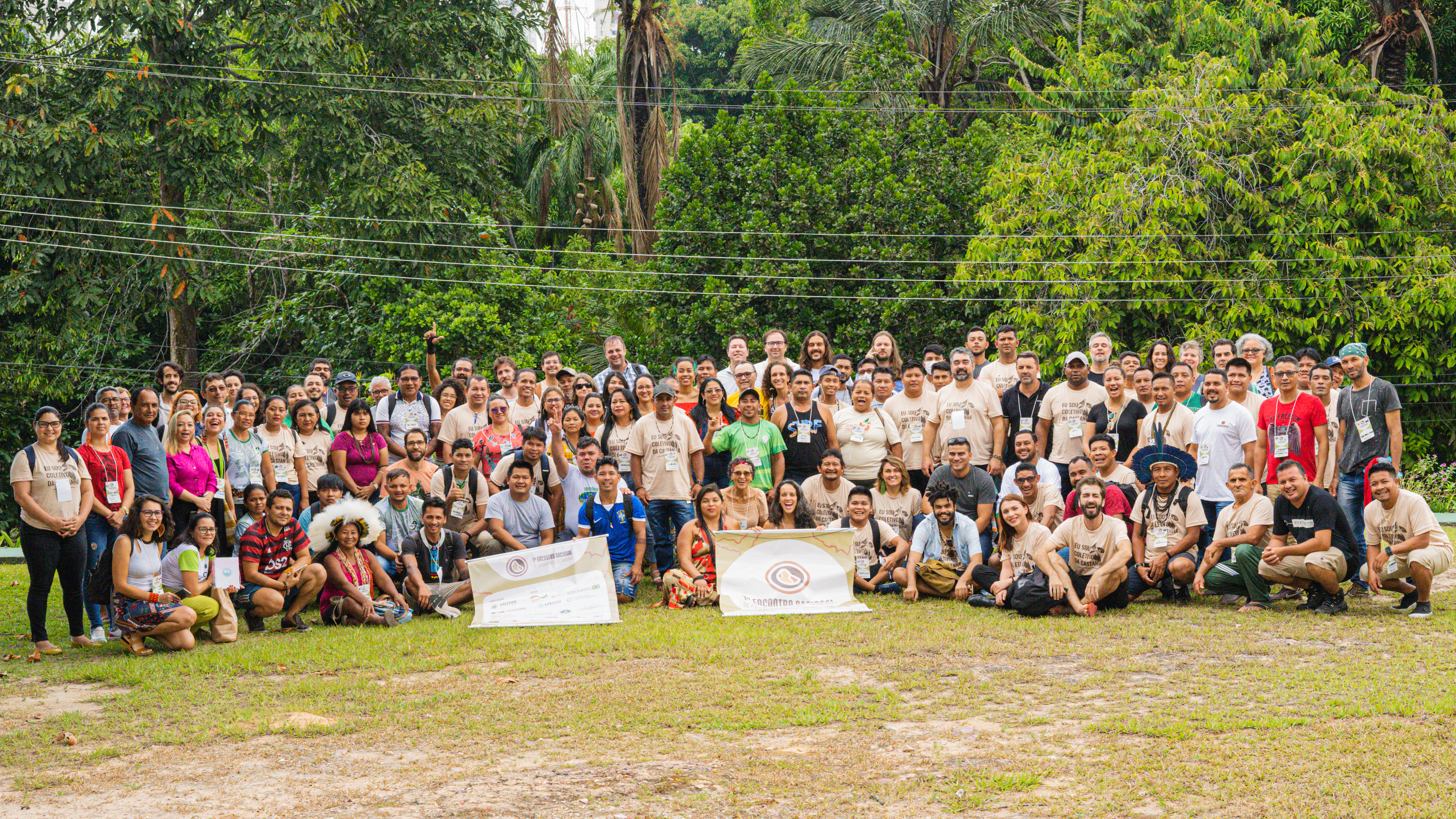 1st National Meeting of Nut Gatherers from the Amazon, in 2022 |
|
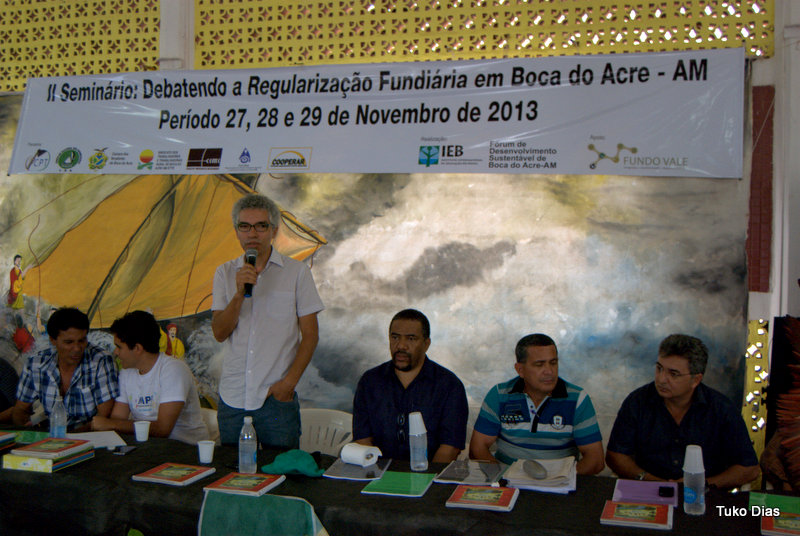 Meeting to discuss land regularization in Boca do Acre in 2013 |
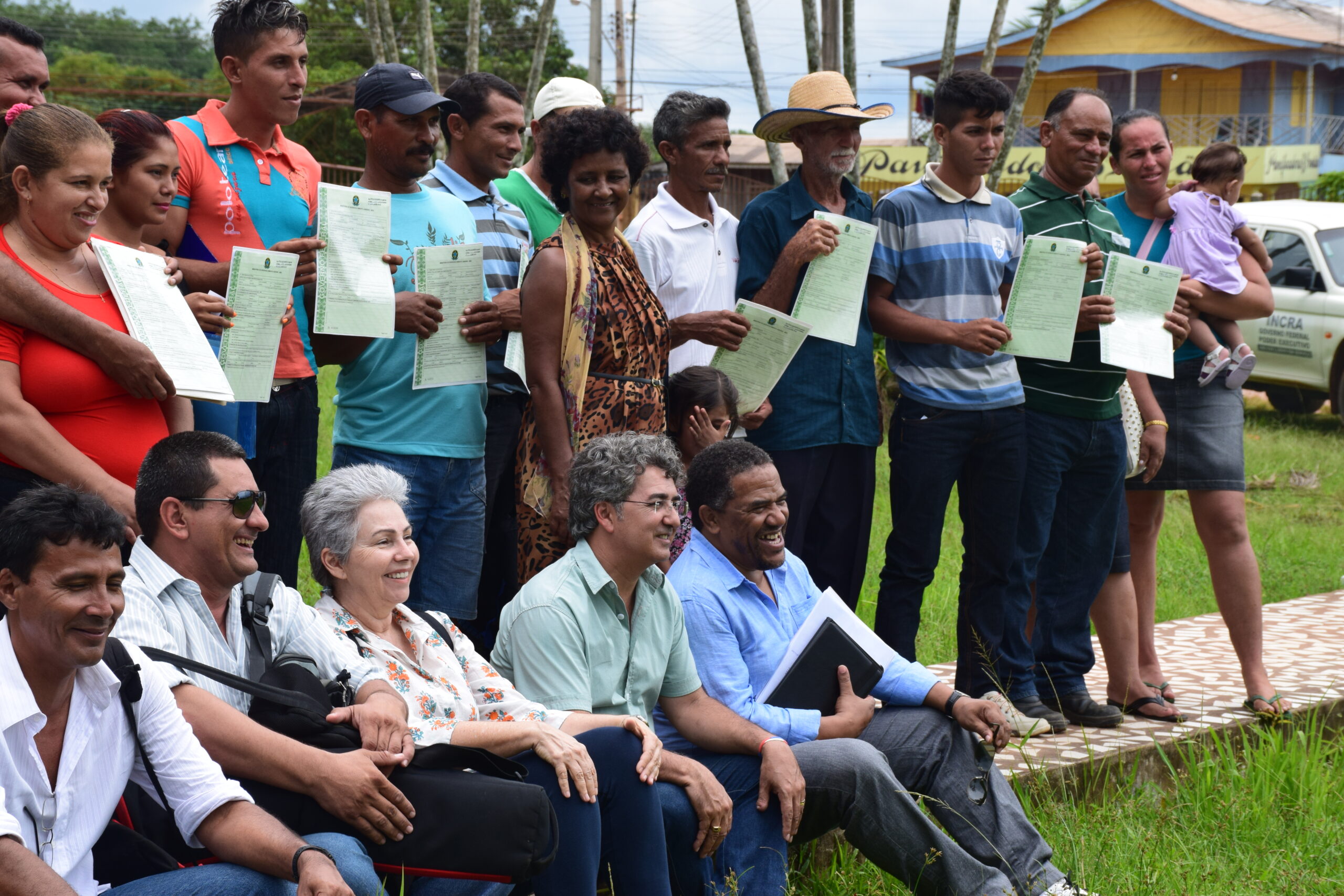 The IEB team celebrates the delivery of land titles to partners |
Finally, the Territorialities program, which operates in the states of Pará and Amapá, presented the direct connection of its work with the Family and Community Forest Management agenda and the other lines of action that have unfolded over the 18 years of the regional office in Belém (PA). These include the agenda for environmental restoration, community enterprises in the socio-biodiversity economies, engagement of women in territorial governance, strengthening of communities in the face of socio-environmental conflicts, and, more recently, the promotion of community organization for indigenous refugees of the Warao ethnicity.
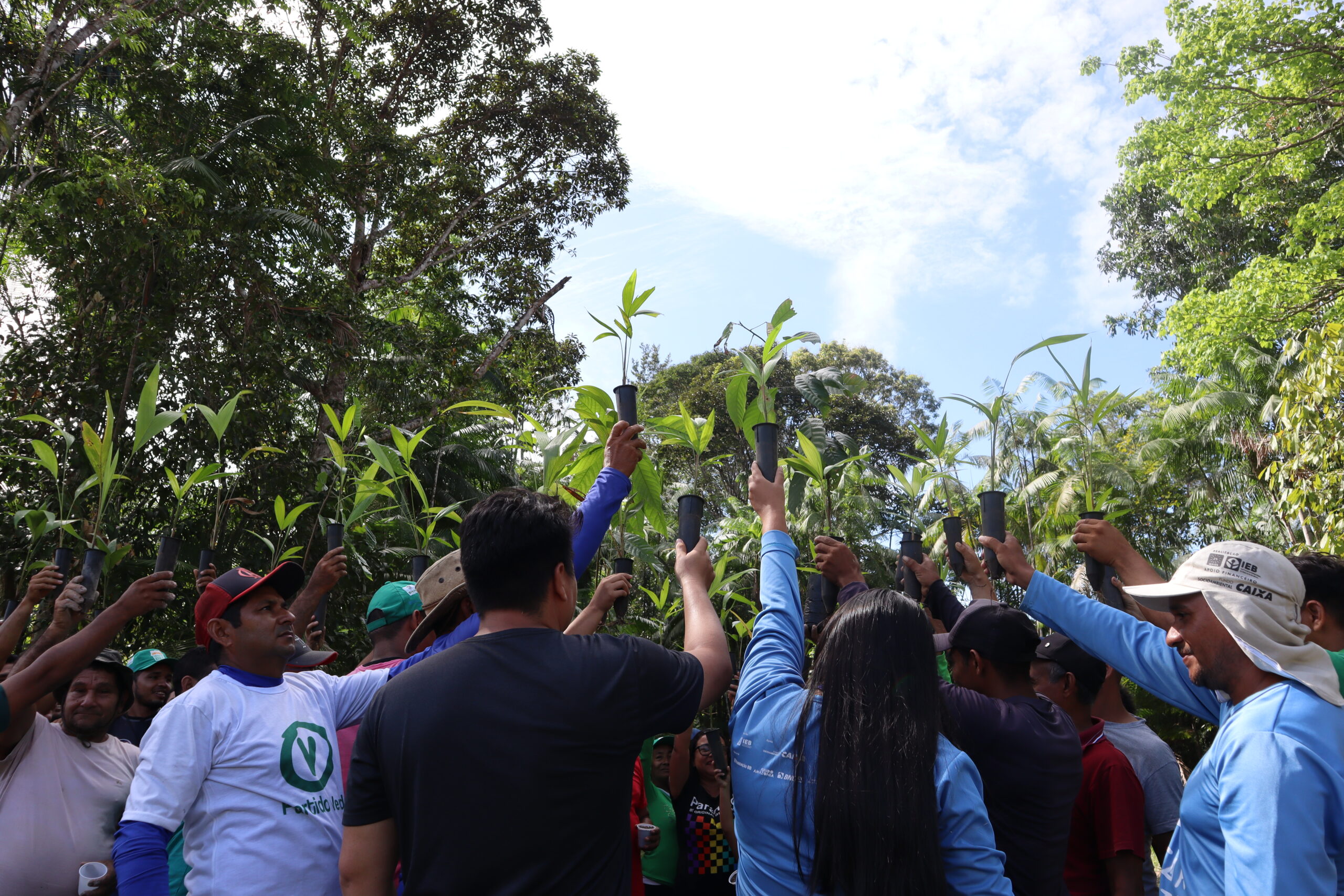 Agroforestry System (SAF) structuring collective effort within the scope of ecological restoration projects by IEB, alongside agro-extractive communities in the municipality of Breves, in the Marajó archipelago (PA). Photo: IEB Collection |
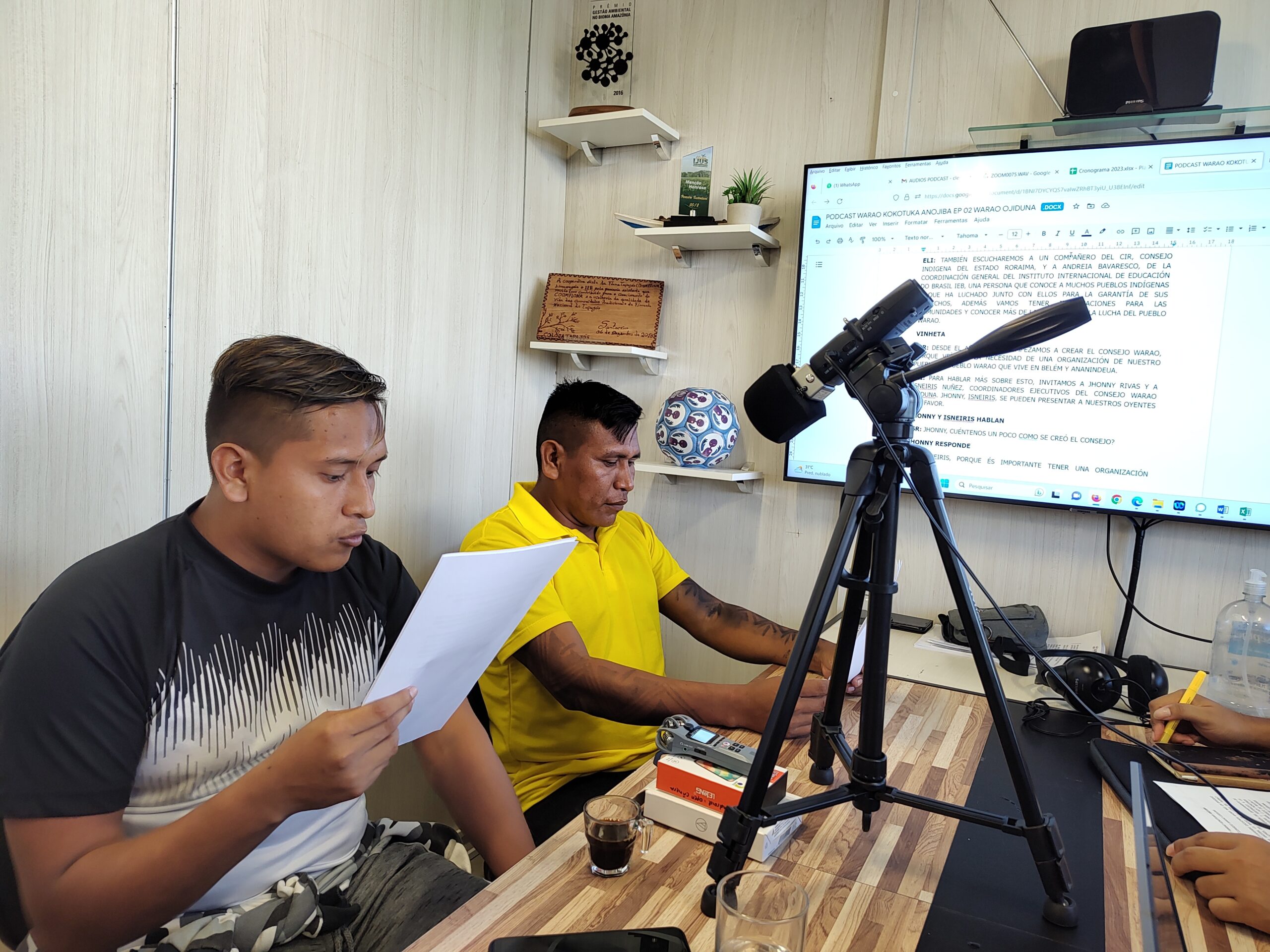 Israel Garcia and Elisel Gomez from the communication committee of the Warao Ojiduna Indigenous Council in a podcast production workshop at IEB. Photo: IEB Collection. |
“In 1998, during the first IEB workshop on community and family forest management, I perceived something incredibly new, challenging, and courageous there. Engaging in discussions around alternatives to deforestation in the Amazon, focusing on the timber chain involving traditional peoples and communities, is a highly innovative endeavor,” reminisced Manuel Amaral, part of the general coordination at IEB and present throughout much of its history.
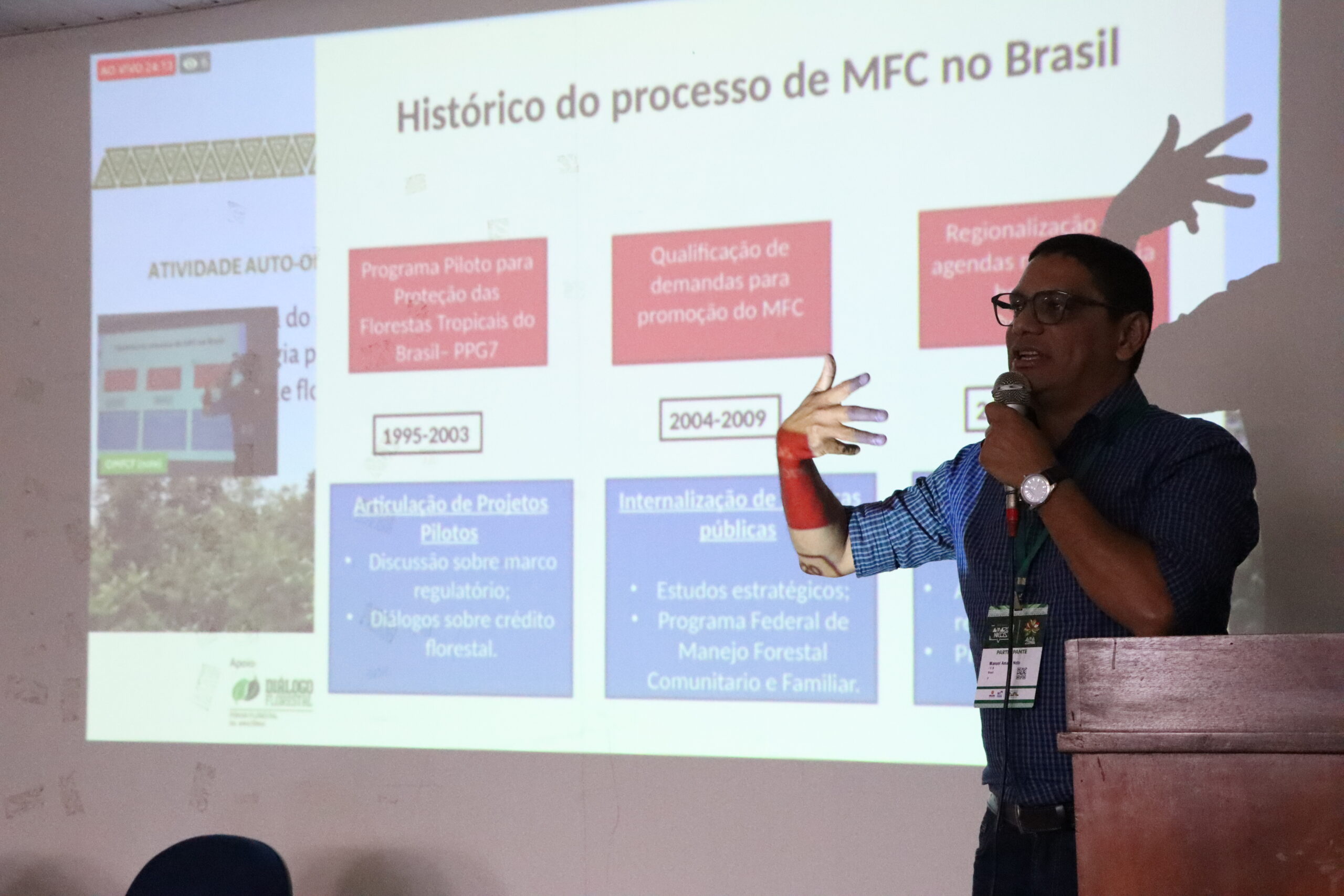 Manuel Amaral at an event at IEB’s Regional Base in Marajó, inaugurated in 2023, in the municipality of Portel (PA). Photo: IEB Collection |
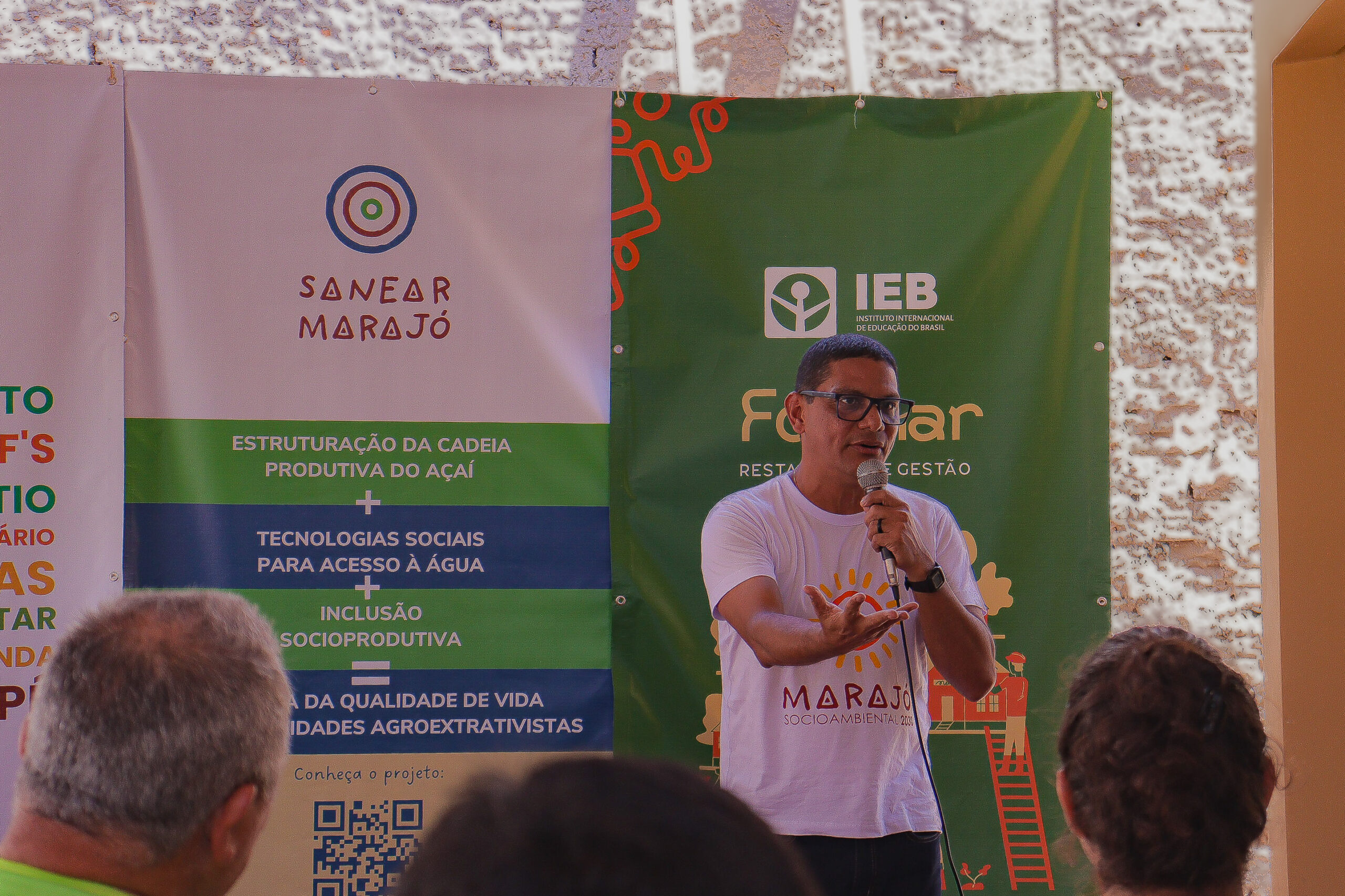 Manuel Amaral at an event at IEB’s Regional Base in Marajó, inaugurated in 2023, in the municipality of Portel (PA). Photo: IEB Collection |
TWO EARS AND ONE MOUTH
The historic meeting also brought representatives from partner organizations for two discussions on ‘Training, Institutional Strengthening, and Environmental and Territorial Management,’ the main lines of action of IEB alongside its partners throughout its journey.
Maria José, the founder of IEB, once told me that we have two ears and one mouth,” recalled Andréia Bavaresco, the executive coordinator of IEB. “And now we conclude the day by listening, which is the hallmark of IEB.
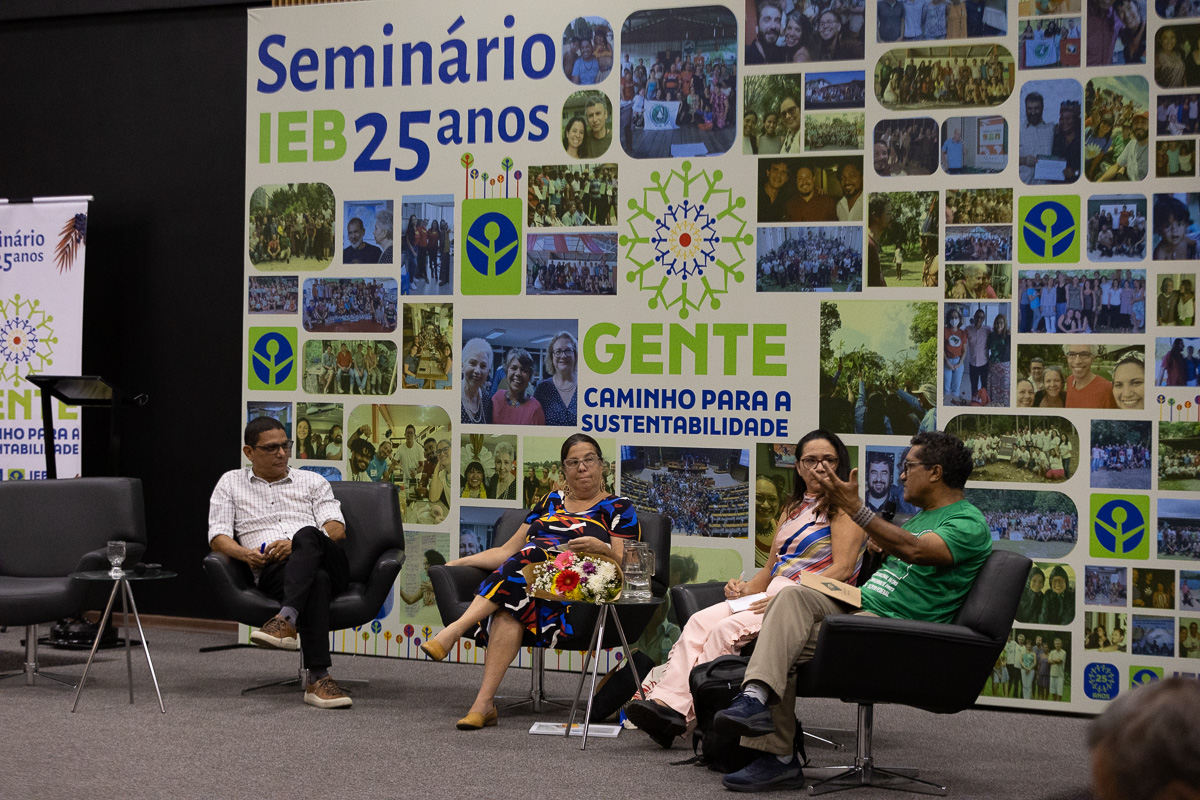
Panel discussion during the IEB 25th Anniversary Seminar. Photo: IEB Collection
In the inaugural panel, Lucia Alberta Andrade, representing the Baré people and serving as the Director of Sustainable Development Promotion at the National Foundation of Indigenous Peoples (Funai), joins Joaquim Belo, a historic leader of the National Council of Extractive Populations (CNS), and Adriana Ramos, Deputy Executive Secretary of the Socio-Environmental Institute and a member of IEB’s Board of Directors. In the second panel, Fábio Vaz, Executive Coordinator of ISPN, and Maristela Bernardo, journalist and IEB council member since its inception, Rogenir Costa, from Fundación Avina, and Sineia do Vale Wapichana, indigenous climate authority and director of the Departamento de Meio Ambiente do Conselho Indígena de Roraima (CIR).
“The IEB plays a key role as a partner to a federal public institution, Funai,” emphasized Lucia Alberta. “Indigenous peoples need to have their rights guaranteed, but Funai alone cannot achieve this. Therefore, partner institutions like IEB are essential. It greatly assists us in the implementation of rights, the right to territorial management, the right to implement and develop territorial management plans for the PGTAs, which is one of the main policies guiding our national work,” she stated.
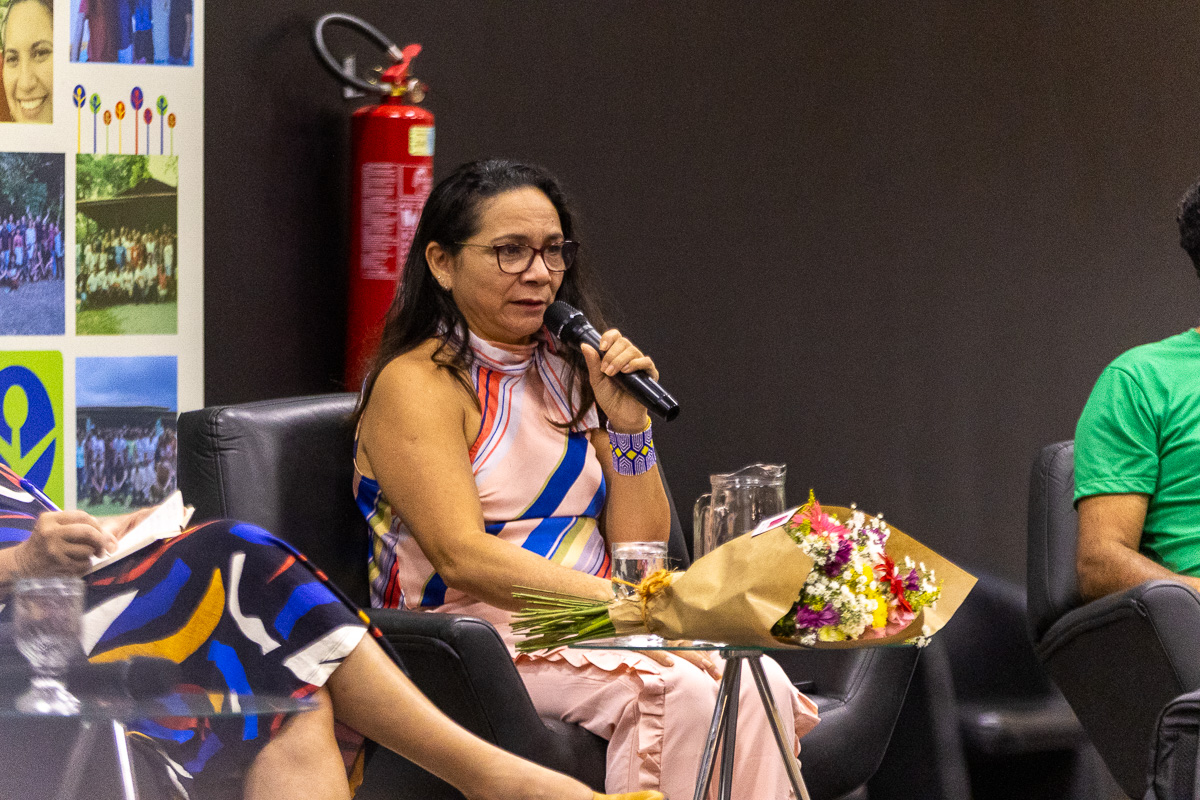
Lucia Alberta during a panel discussion at the IEB 25th Anniversary Seminar. Photo: IEB Collection
Adriana Ramos highlighted IEB’s innovative capacity and ability to respond to demands rather than relying on a blind passion for solutions. She also reminisced when she participated in the Environmental Policy, Law, and Communication Course, a pivotal milestone at IEB that has shaped numerous individuals contributing to Brazilian socio-environmentalism today.
“If there’s one thing that was crucial in my journey, it was this course at IEB,” she celebrated. “IEB has been an organization that, over time, knew how to assume the role of helping society to move and making the organization move from society. When we find a solution to something, sometimes we fall in love with the solution and forget about the problem. It’s often easy for any organization to fall in love with the solution and repeat the formula. However, with IEB, we see that it didn’t easily fall for the solutions it created but maintained the commitment to the problem, constantly finding new ways to provide support. It’s a story of an organization very consistent with the initial commitment, yet its impressive ability to renew,” she summarized.
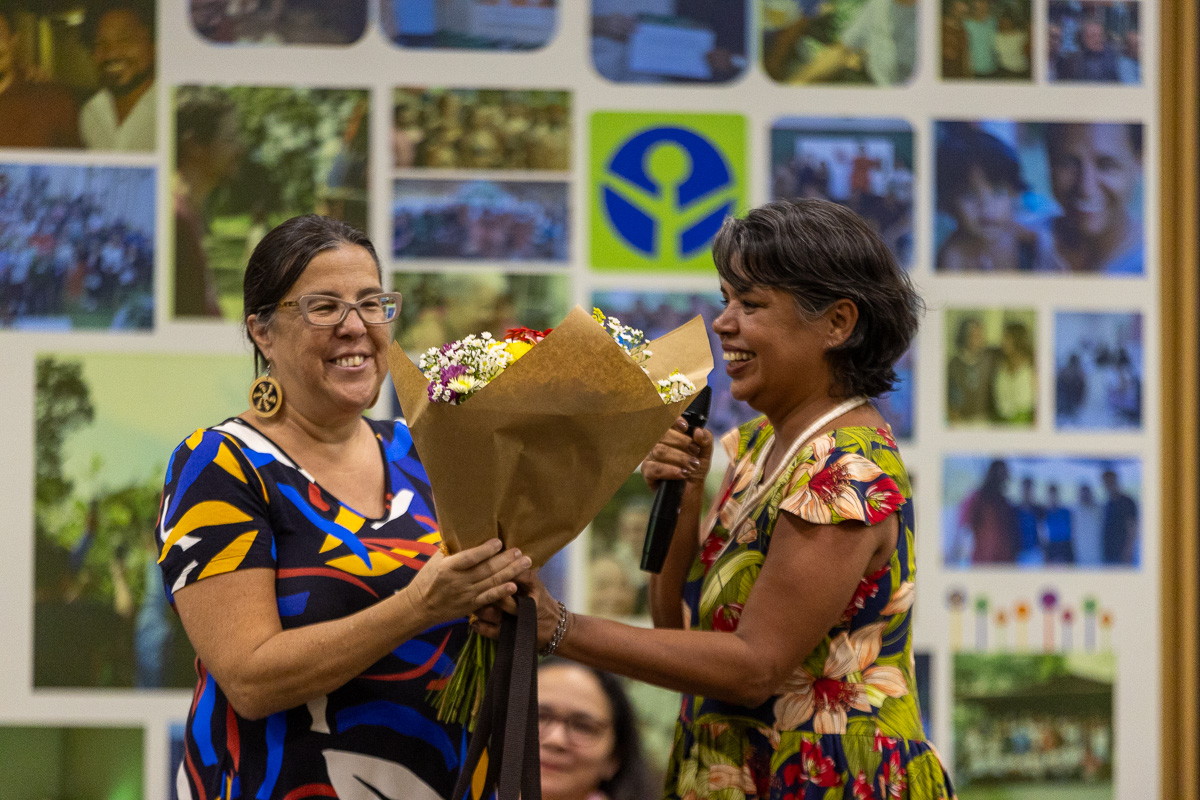
Adriana Ramos receives a tribute from IEB. Photo: IEB Collection.
Additionally, Andreia Bavaresco, Executive Coordinator of IEB, emphasized that, in general, the approach has always been to bring people together for conversations. After all, they are the path to sustainability.
“We refrain from clinging to solutions as a considerable number of them don’t thrive. While solutions exist, our approach involves fostering dialogues among individuals. Through these conversations, these solutions blossom, and these voices resonate.”
Similarly, Sineia do Vale recalled some partnerships between IEB and CIR and celebrated the long-standing collaboration that has reached ten years and continues to be developed in Roraima.
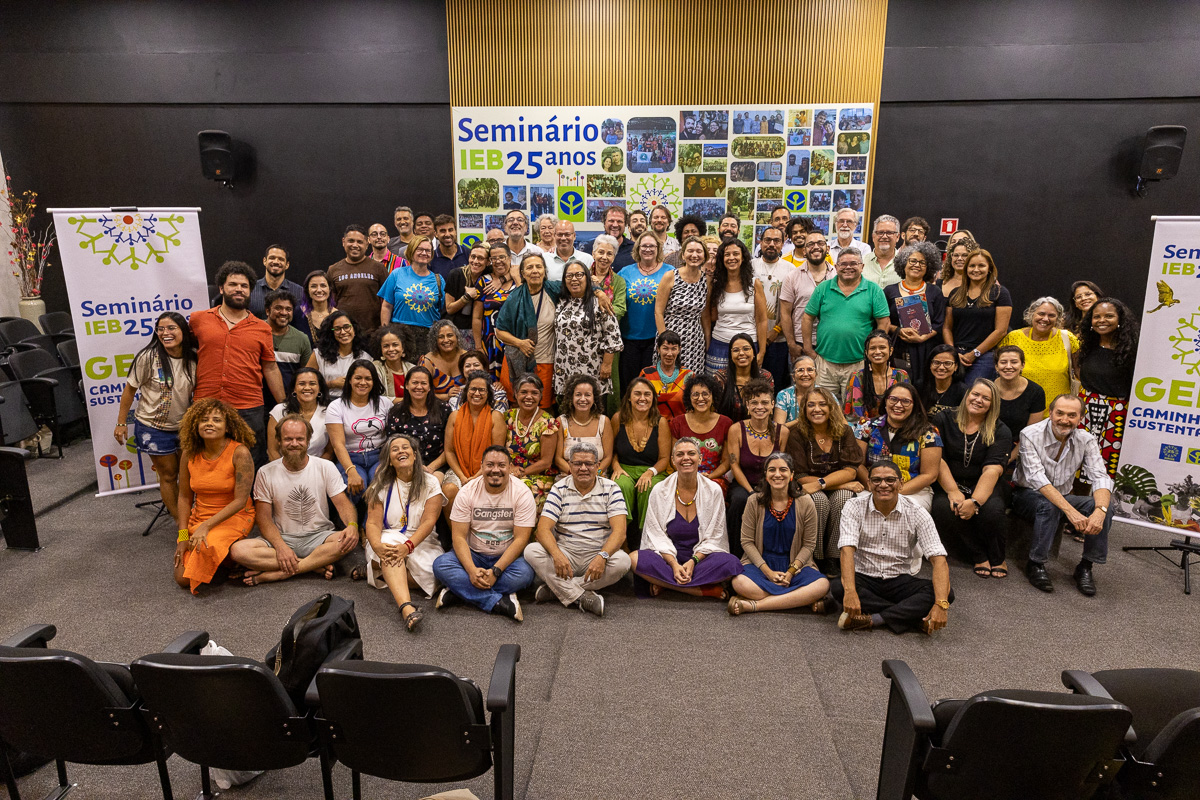
The IEB celebrating the IEB 25 Seminar
Photo: IEB collection
“The IEB has been amplifying the efforts of indigenous communities. The key is not to arrive and overhaul existing practices but to enhance what is already working well,” she said.” IEB, much like CIR, is an organization that brings people together. It gathers us to think about how to do better to yield more impactful results for our communities. Please continue ensuring that indigenous peoples are integral to this work, not just beneficiaries. Because when we feel included, we collaboratively build. Let’s work together to come out with something truly positive.”
And bringing in the voice of someone who has been following the institution’s journey since the beginning, Maristela Bernardo, journalist and former President of the IEB Board of Directors, summed up what she sees as the work of IEB and took the opportunity to reflect on future paths for the institution.
“We observed this morning how IEB has established standards, methodologies, and knowledge in the field of sustainability, particularly in what might be the most complex aspect of this field: there is no sustainability if you cannot navigate the path of change, if you do not balance power relations. So, from the outset, it was clear in IEB’s programs that our role was to contribute to the smaller entities—not to make them large but to engage with the larger players on an equal footing within the realm we call power, economic power, financial power, technological power. The smaller players cannot be lost in this dialogue. They must come forward with their reasons, rights, and demands. Without achieving this, sustainability is not possible. We will always have a situation of imposition,” she analyzed.
“For the next 25 years, with the certainty that it is on the right path, that in these 25 years, it has acted innovatively and competently, but that it can more decisively shape what we call sustainability for the world. I wish IEB and the world a sustainable future,” she concluded.
THE FUTURE IS RIGHT AROUND THE CORNER
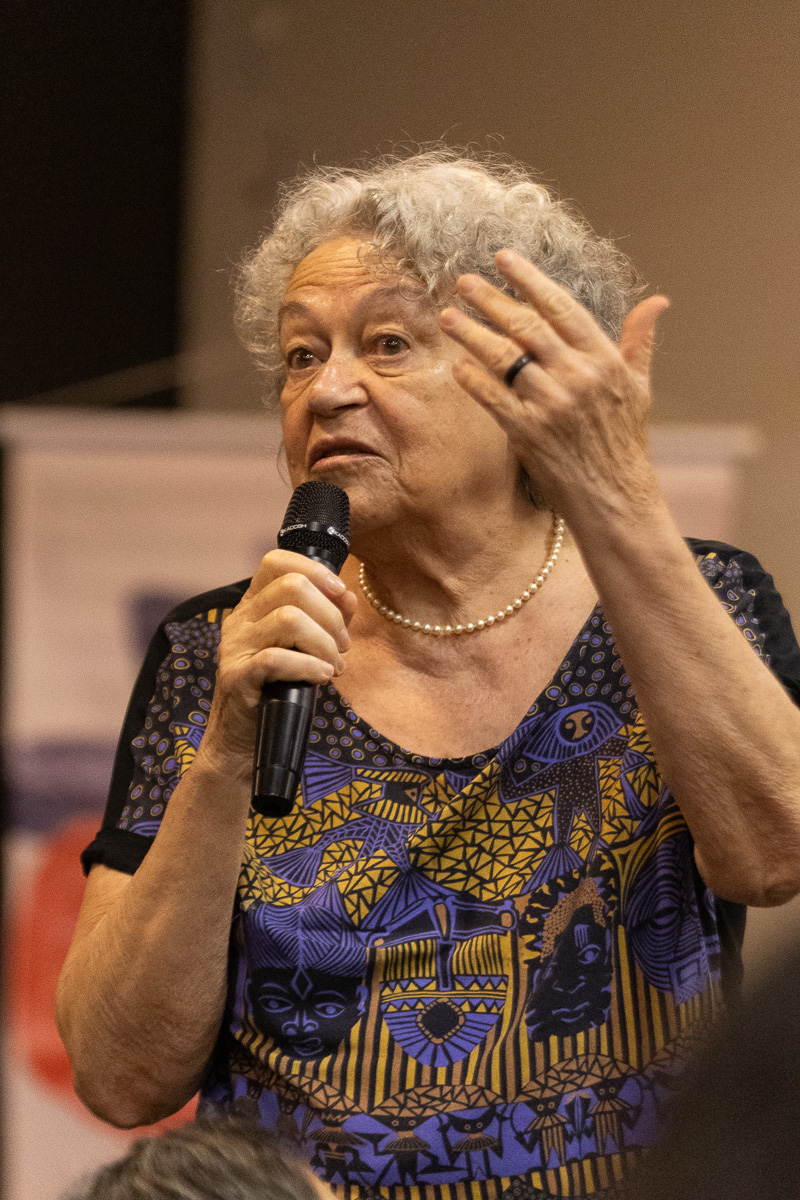
Maristela Bernardo. Photo: IEB collection
After a historic day of celebration and reflection, IEB gathered a significant portion of its team for a 3-day strategic planning session. The focus was discussing IEB’s strategic objectives for the next three years, aligning specific program goals with overall objectives, and organizing the significantly growing team within its core units and across programs.
“The idea over these three days was to stem from revisiting this legacy to look ahead to the next three years,” summarized Andreia Bavaresco. “We aimed to see IEB as a whole, understand its objectives, goals, and how these aspects will reflect in our work, program, and unit. We hope to gain an understanding of what IEB represents today and envision the IEB we desire. What are the possibilities for integration within IEB, and how can we deepen and enhance that?”
